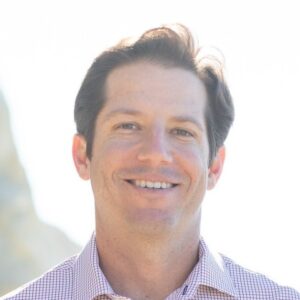True Leaders are Doers: Why Practitioners Are the Most Effective Leaders
Leading an insurance agency is not an easy task. You have to be part sales manager, part cheerleader, and part master strategist. You are constantly being pulled in dozens of different directions at one time. While you can read a new book about leadership every day for the rest of your life and still never finish all of the material that has been written about leadership, almost all of the work on the subject can be distilled to three things:
- Trust
- Empathy
- Vision
If you are going to be a truly effective leader, you need to cultivate all three of these areas. However, if you are a practitioner and not just a manager, you already have an advantage. Being a practitioner, having worked in the field selling insurance, operates as a leadership training shortcut.
Trust Comes from Competence
The sitcom The Office made a joke out of incompetent managers. But, the humor exposed a brutal truth everyone who has ever worked in an office already knows. You cannot trust incompetent leaders. Practitioners have an easier time earning the trust of their teams than regular managers because practitioners know how to actually do the work. Teams want leaders than go to for advice. You cannot bounce ideas off of someone who has no idea what it’s like to make cold calls or who has never built a client list. When you have been in the trenches, it’s easier for your team to feel like you have earned your leadership position and to trust your directions.
Empathy Comes from Shared Experiences
Empathy is the ability to feel what someone else is feeling. The real test of a leader isn’t what they do when everything is going well; it’s what they do when everything is crashing down around them. Can they rally the troops and lead everyone to safety, or do they panic and make the crisis worse? Empathy is the skill you need when things go wrong. It’s what helps you understand your team, and it’s what bonds you and your team together. You can’t fake empathy. The best way to develop empathy is through shared experience. By definition, leaders who are practitioners have been there and done that. They understand rejection, and they understand the panic that comes from a missed quota. Because of these past experiences, they can empathize with the team, and they can show everyone the way forward.
Vision Comes from Understanding the Past, Present, and the Future
Before you can be an effective leader, you have to have someplace you plan on leading your team to. Leadership requires vision. But, vision doesn’t come from a spreadsheet or a set of corporate goals. A leader develops a vision that can be accomplished by understanding the past, present, and future of the organization. Here again, the practitioner has a massive advantage over a typical manager. A practitioner has had years of experience in the insurance industry. They know what the company and agency have done in the past. They know what the current state of the insurance industry is, and from that experience and knowledge, they can create a clear, achievable vision for the future. It is much easier to lead people when they can tell you know where you are going, even if they don’t fully understand. Leadership is transformational. An effective leader makes their team better than they were before through trust, empathy, and vision. Because practitioners have natural advantages in all of these areas, they tend to make the best leaders in a specialized business like an insurance agency.
About the Author
Justin Goodman has spent the past 20 years in insurance. He is the co-founder and CEO of Total CSR and co-founder and Managing Director of Project 55. By the age of 29, he was recognized as one of the top five construction insurance experts nationwide by Risk and Insurance Magazine. He also was named to Insurance Business Magazine’s Hot 100 and most recently the 2024 Insurance Journal Agent of the Year. Justin has trained over 50,000 CSR’s, account managers and producers through his work at Total CSR. He has a passion for developing the next generation of insurance professionals. When not with his family, he devotes his free time to speaking engagements and advising agency owners across the country.
